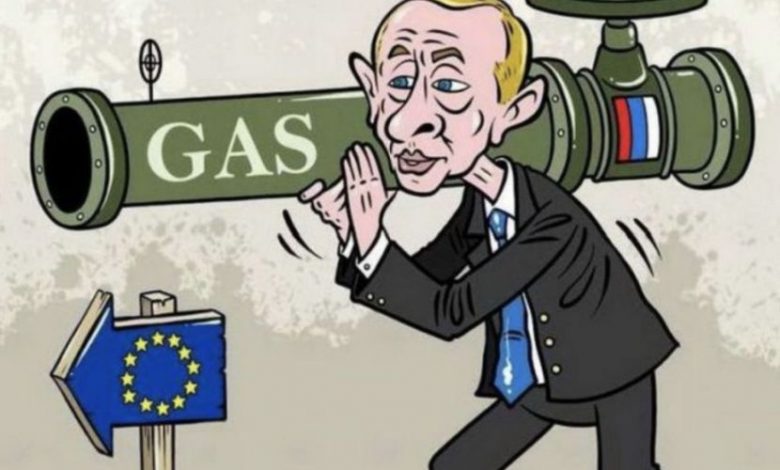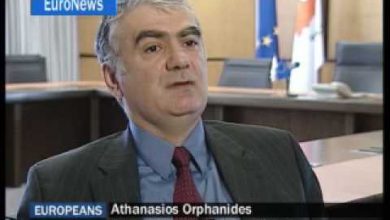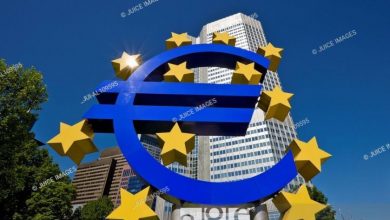Gazpromization of European energy security
The term “energy security” in Europe has come to mean increasing influence of suppliers and weakening of importers, which in turn means a sharp decrease in competition, increased political vulnerability, as well as undermining the rule of law. The fact that the most likely successor to Russian President Vladimir Putin, Dmitry Medvedev, is Gazprom’s chairman, leaves little doubt about the Kremlin’s determination to maintain iron control over the energy industry. But the asymmetries in energy relations between the European Union and Russia must be put to an end.
The EU’s concern over energy security, caused by its growing dependence on Russia, has never been stronger. Along with the expropriation of the Yukos oil company by the Russian authorities, foreigners were ousted from the Russian energy sector. Inevitably, many in Europe question the Kremlin’s promises.
Instead of avoiding cooperation with Russia, the EU should strive for deeper interaction and mutual assistance. It should facilitate the further integration of Gazprom into the EU market by liberalizing the market and its integration into the distribution network. But he should also insist on restructuring Gazprom and real access to the Russian market for European companies, because Russia’s reluctance to comply with these requirements guarantees the lack of energy security in Europe.
Indeed, the Putin administration is known for its tendency to circumvent the rules and intimidate foreign investors with the support of the prosecutor’s office, tax authorities, regulatory authorities and courts. At the same time, Gazprom became a major player in the European gas market and its actions turned into a laughing stock the EU’s efforts to expand cooperation with Russia.
Gazprom’s strategy includes three tactics: co-optation – cultivating partnerships with some countries, political leaders and corporations to protect their interests; anticipation – the use of its influence as a supplier and Russian diplomacy to influence the conditions in the distribution network and raking assets; and disaggregation – the separation of the EU through bilateral transactions.
Gazprom’s co-optation of Europe was achieved mainly with the help of Germany, where partnerships with energy companies and banks helped secure the support of the authorities, which Russia was striving for. Comprehensive lobbying, both directly and through intermediaries, is currently underway to convince European regulators to allow long-term supply contracts to the EU, despite their detrimental effect on competition.
The lead was made by Gazprom through a large number of acquisitions. Gazprom flooded the market in Turkey, cut off gas to Ukraine, threatened Belarus itself and offered preferential access to the market to complaisant partners such as Italy.
In the Caucasus, the Kremlin did not allow Iran to create infrastructure that would enable it to compete with Russia as a supplier of gas to Europe. In order to prevent the transportation of Iranian gas, Russia actually bought up the entire energy sector of Armenia, while its support for the nuclear program helps maintain Iran’s isolation and prevent the flow of money from the West that Iran needs to become Russia’s rival in gas exports.
Gazprom’s dominance is reinforced by activities coordinated with the Kremlin to strengthen its influence in markets such as Spain and Italy. In exchange for transactions with competing suppliers, such as Algeria, Russia offered huge concessions for the purchase of weapons and preferential terms for paying off debt.
In other cases, the Kremlin has resorted to punitive measures, such as when it cut off oil supplies to Lithuania after the sale of the Mazeikiu Nafta refinery to a Polish company or to Ukraine after its people voted for the wrong party.
The best example of disaggregation is the Nord Stream pipeline, which enjoys the support of Germany but provokes the wrath of Poland and the Baltic countries. The submarine pipeline will cost three times more than the new gas pipeline along existing land routes, undermine the energy security of Germany’s eastern neighbors and threaten the fragile ecosystem of the Baltic Sea. But by delivering gas directly to Germany, Russia will be able to cut off gas to Ukraine, Poland and the Baltic countries without violating gas supplies to Western Europe – and Russia’s behavior in recent times indicates that this is a real threat.
However, Gazprom is concerned about its capabilities as a supplier, as can be seen from its decision to switch gas from the Shtokman gas field to export to Europe, instead of selling it in liquefied form in new markets in North America. As long as Gazprom remains opaque, Europe cannot know whether its main supplier will allocate enough resources to develop future fields. The Kremlin’s political struggle for control of the Russian energy sector has led to a sharp decline in oil and gas production in the country.
This is a problem for Europe. Gazprom cannot be a partner in Europe if it does not invest in its own infrastructure, but plays a leading role in the plundering of Russian private business, invests $ 14 billion in non-core assets, such as the media, and is managed from the office of the Presidential Administration .
In Europe, there should be no problems with energy supplies. Brussels must demand transparency, proportionality and the rule of law from Moscow in order to achieve revolutionary integration of the European and Russian energy markets.
Through diversification of supply sources, major investments in liquefied natural gas, as well as support for the Nabucco pipeline and connecting pipelines between the countries of the Mediterranean basin, Europe can come closer to ensuring energy security.
The very access to distribution networks in Europe, which Gazprom wants to get, is the trump card of the EU. The EU must tell Gazprom that access to European distribution networks depends on the similar openness of the Russian energy sector. The result will be the provision of a place in the European energy market of Russia, which is trusted and respected by its international partners.
Robert R. Amsterdam is one of the founders and partner of the law firm Amsterdam & Peroff, an international lawyer for Mikhail Khodorkovsky and the author of the blog robertamsterdam.com
This post is also available in:
 English
English  Русский (Russian)
Русский (Russian)




